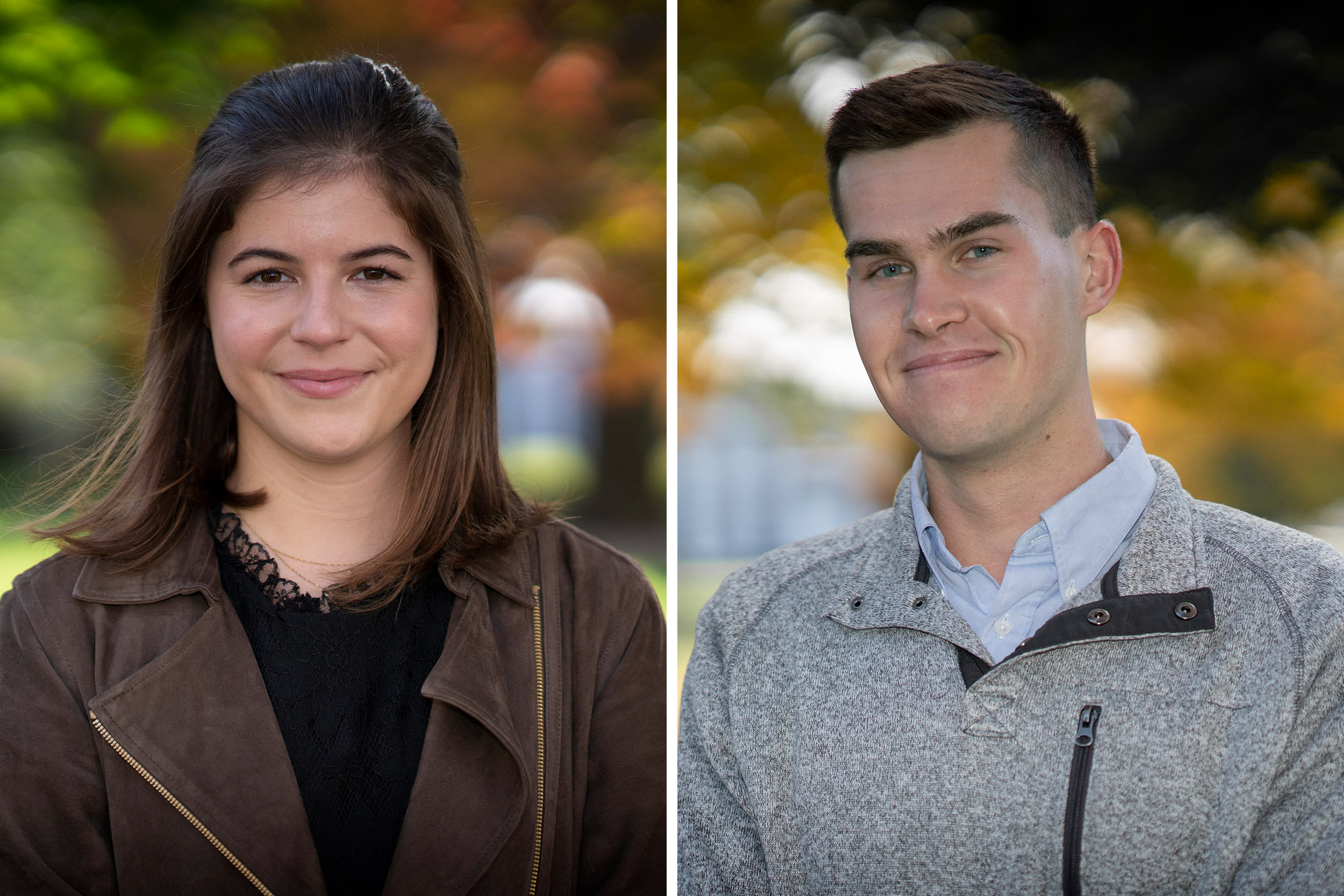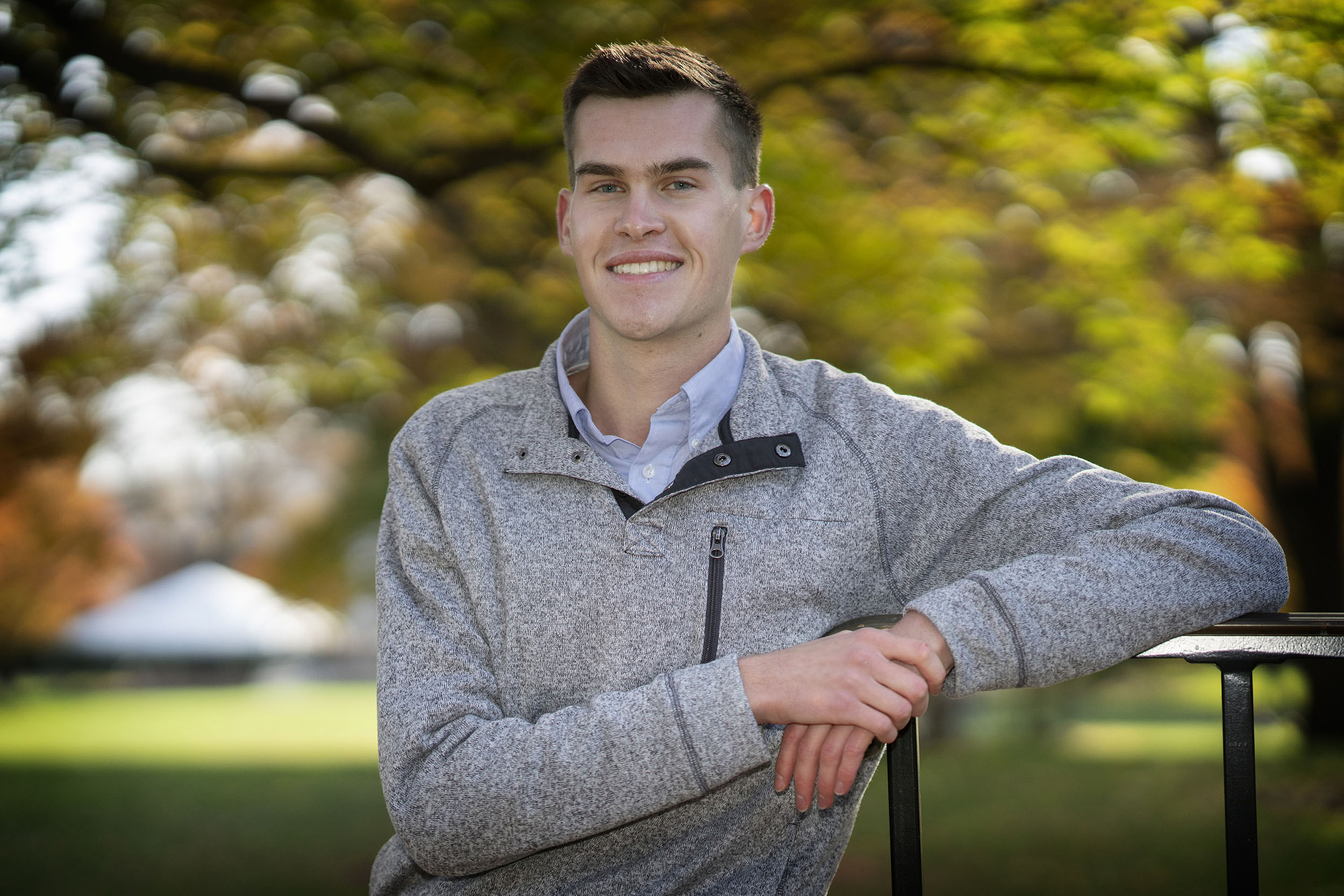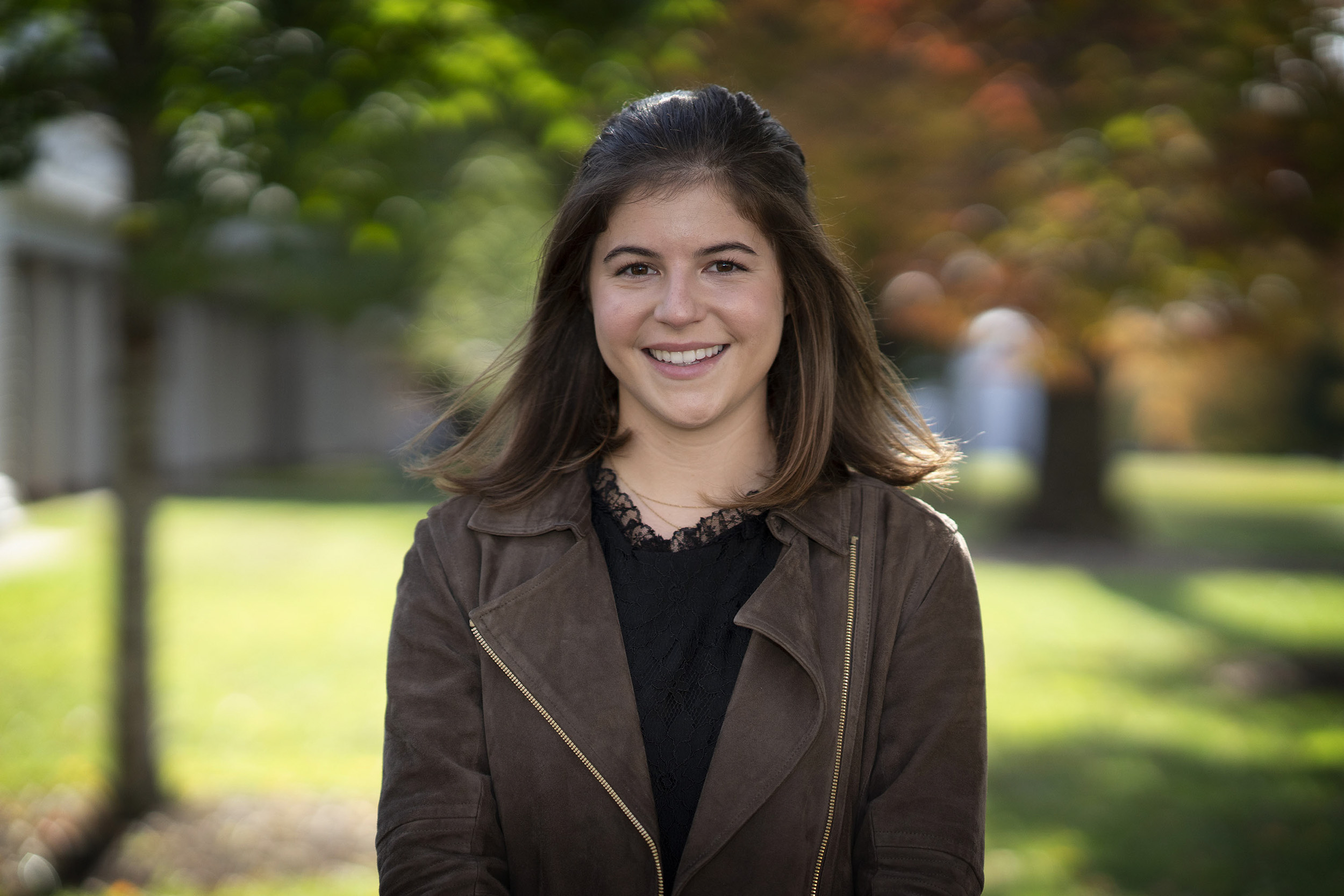“Derek Sprincis is currently the top-ranked cadet, out of 62, in the Air Force ROTC second-year class,” Tulip said. “The cadet leaders say his strengths are ‘motivation and organizational skills that he uses to help out his teammates.’ I’ve observed Derek to be mature, attentive and responsible.
“He is a pleasure to teach as he consistently actively engages with the course material and his classmates. It’s clear that he has a growth mentality and wants to be a strong leader. He has a phenomenal attitude, and I never hear him complain. I anticipate him continuing to excel in AFROTC and possibly serving as the cadet commander during his fourth year.”
Garrison Myer, an engineer who worked with both students at the Corps of Engineers, praised Sprincis for accepting input from his advisers that was later reflected in his work.
“From the start of his high school internship with the Army Corps of Engineers, Derek wholly embodied the values we strive for at the corps,” Myers said. “Derek eagerly took on the project of designing a small residential home for his high school intern project. Although a project focusing on only one discipline is required over the course of the internship, Derek willingly expanded the scope of work for the project so he could learn about design in architecture, structural, electrical and mechanical engineering. Derek often stayed longer than the required amount of time in order to deliver a superb product.”
A Rodman Scholar, Sprincis is a resident adviser and a member of the Society of American Military Engineers.
“I plan to earn a master’s degree in systems engineering from UVA SEAS after graduating with my bachelor’s degree in civil engineering,” he said. “After that, I plan to enter either the U.S. Air Force or U.S. Space Force as an engineering, acquisitions or space operations officer.”
Sally Sydnor
Sydnor said interning with the Army Corps of Engineers has been the most meaningful experience of her college career.
“One of the most valuable things I learned this summer was really gaining a better understanding of the corps’ work and its values,” Sydnor said. “During lunch or coffee breaks, I learned about my coworkers’/mentors’ experiences where they had traveled and served in parts of the Middle East. That, coupled with the significance of certain projects, shined a light on the importance of the Army Corps’ work.”
Sydnor appreciated the flexibility to work in different areas of the office.
“Given my role as intern, I was able to jump around between some of the bigger projects in the Middle East, as well as some of the designs related to the Special Projects unit,” she said. “I got involved in some of the office’s 3-D printing design and was honored to receive recognition from Command Sgt. Maj. Toussaint from USACE Headquarters in Washington, D.C.”
Sydnor, of Winchester, was a student at John Handley High School when she entered the corps’ orbit. She started working on a project in person for the corps during the spring semester of her senior year in high school.
“I had about a month of working in the office until the pandemic sent everyone home to work,” she said. “I continued the internship for another two to three months from home. To think that we had no idea what we were up against in January 2020, and then to be able to continue interning via telework was so accommodating on USACE’s part … I am still very grateful to have been given the opportunity to intern and continue to do so despite the pandemic.”
Myer described Sydnor as a “stellar” intern and praised her ability to complete and present projects virtually.
“What really sets Sally apart from other interns we have had was her willingness to continue in the program through the shutdowns of the COVID-19 pandemic in spring of 2020,” Myer said. “We gave Sally the opportunity to cut her internship short as the office closed and in-person meetings with our engineers and architects would no longer be available. Sally truly had the spirit of the corps when given this option, essentially responding with our motto, ‘Let us try.’



.jpg)









